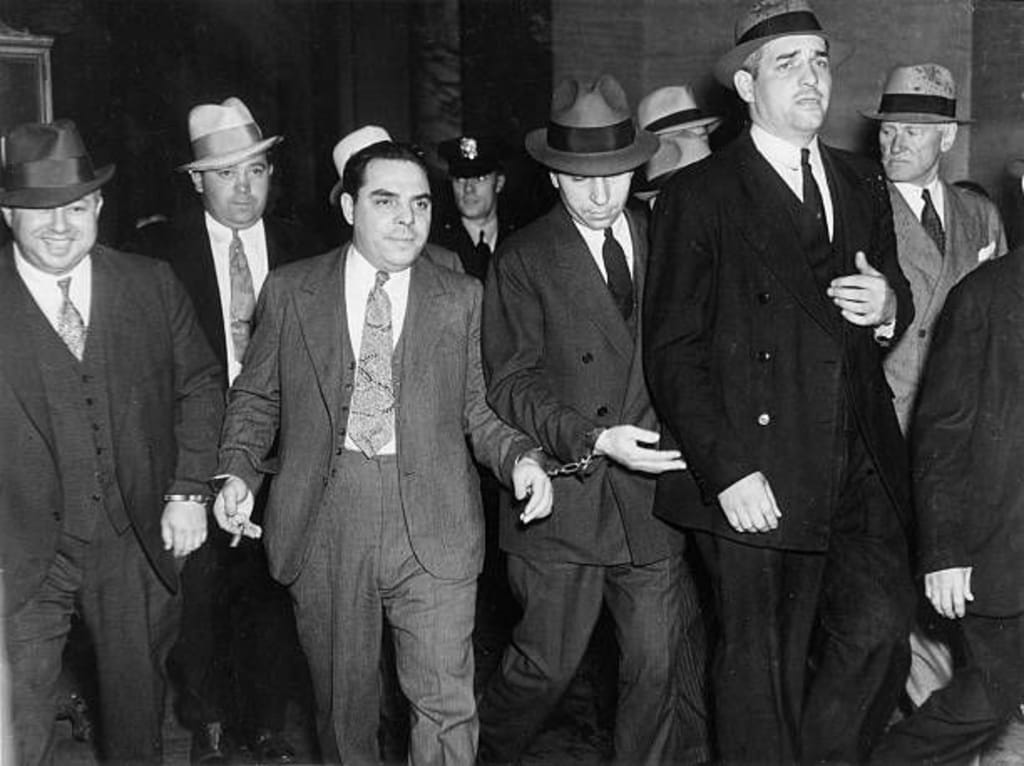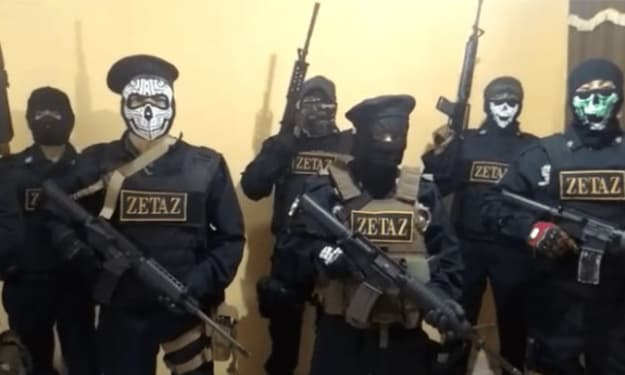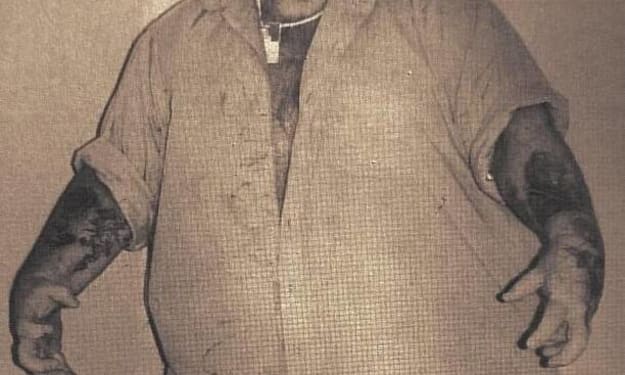The Sicilian Mafia: Origins, Operations, and Influence
A Comprehensive Examination of Italy's Most Notorious Criminal Organization

Introduction
The Sicilian Mafia, also known as Cosa Nostra, is one of the most infamous and enduring criminal organizations in history. With roots dating back to the 19th century, the Mafia has evolved into a powerful and sophisticated network that has deeply influenced Sicilian society, Italian politics, and global organized crime. This article delves into the origins, operations, and influence of the Sicilian Mafia, exploring how it has maintained its grip on power and the efforts to combat its pervasive reach.
Origins of the Sicilian Mafia
The origins of the Sicilian Mafia can be traced to the mid-19th century in Sicily, Italy. The term "mafia" originally referred to a sense of pride, honor, and protection within the community. However, over time, it came to denote a secret criminal society that operated outside the bounds of the law.
The Mafia's emergence coincided with a period of social and political upheaval in Sicily. Following the unification of Italy in 1861, the island experienced widespread poverty, corruption, and lawlessness. The new Italian state struggled to assert control over Sicily, creating a power vacuum that the Mafia exploited. The Mafia began as local groups of enforcers and protectors, providing security and settling disputes in return for loyalty and payment.
By the late 19th century, the Mafia had established a hierarchical structure, with local bosses, or "capos," overseeing territories and reporting to higher-ranking leaders. This period also saw the Mafia's infiltration into legitimate businesses and politics, laying the foundation for its future expansion and influence.
Organizational Structure and Operations
The Sicilian Mafia is characterized by a hierarchical and secretive structure designed to ensure loyalty, security, and efficient operations. At the top is the "Cupola" or Commission, a governing body composed of the heads of the most powerful Mafia families. This body coordinates activities, resolves disputes, and sets policies for the organization.
Below the Commission are the individual Mafia families, each controlling a specific territory or "mandamento." Each family is led by a "boss" or "don," who is supported by a network of lieutenants, soldiers, and associates. This decentralized structure allows the Mafia to operate flexibly and adapt to changing circumstances while maintaining a unified front.
The Mafia's operations are diverse and lucrative, encompassing a wide range of criminal activities:
Protection Rackets: One of the Mafia's earliest and most enduring operations is the extortion of businesses and individuals in exchange for "protection." Failure to comply often results in violence or property damage.
Drug Trafficking: Since the mid-20th century, the Mafia has been heavily involved in the global drug trade, particularly heroin trafficking. The Mafia's control over smuggling routes and distribution networks has made it a key player in the international narcotics market.
Money Laundering: The Mafia launders proceeds from its criminal activities through legitimate businesses, such as construction, real estate, and tourism. This not only conceals illicit gains but also integrates the Mafia into the legitimate economy.
Political Corruption: The Mafia has a long history of infiltrating and corrupting political institutions. Through bribery, intimidation, and alliances, the Mafia has influenced elections, secured government contracts, and shaped public policy to its advantage.
Influence on Sicilian Society and Beyond
The influence of the Sicilian Mafia extends far beyond its criminal enterprises. In Sicily, the Mafia has historically acted as a parallel authority, enforcing its own rules and justice system. This has undermined the rule of law and fostered a culture of fear and silence, known as "omertà."
The Mafia's influence on politics is particularly notable. Throughout much of the 20th century, the Mafia maintained close ties with political figures and parties, particularly the Christian Democrats. This relationship provided the Mafia with political protection and access to public funds, while politicians benefited from the Mafia's ability to mobilize votes and maintain social order.
Internationally, the Sicilian Mafia has played a significant role in the development of organized crime. The Mafia's involvement in the global drug trade has connected it with criminal organizations in North America, South America, and Europe. The American Mafia, or Cosa Nostra, is a direct offshoot of the Sicilian Mafia, established by Sicilian immigrants in the late 19th and early 20th centuries.
Efforts to Combat the Mafia
Efforts to combat the Sicilian Mafia have been ongoing for over a century, with varying degrees of success. Law enforcement and judicial efforts have intensified since the 1980s, driven by a series of high-profile murders and public outrage.
One of the most significant milestones in the fight against the Mafia was the Maxi Trial (1986-1992), which was the largest anti-Mafia trial in history. Spearheaded by courageous magistrates Giovanni Falcone and Paolo Borsellino, the trial resulted in the convictions of hundreds of Mafia members and exposed the inner workings of Cosa Nostra. Tragically, both Falcone and Borsellino were assassinated in 1992, highlighting the dangers faced by those who challenge the Mafia.
The Italian state has also implemented various legislative measures to combat the Mafia, including the introduction of tougher penalties for Mafia-related crimes, the use of pentiti (turncoats) who provide testimony against their former associates, and the confiscation of Mafia assets.
International cooperation has played a crucial role in addressing the Mafia's transnational operations. Joint efforts between Italian authorities and agencies such as the FBI and Interpol have led to significant arrests and disruptions of Mafia activities abroad.
Current Status and Challenges
Despite significant progress, the Sicilian Mafia remains a formidable and resilient organization. While high-profile arrests and asset seizures have weakened its leadership and operations, the Mafia has shown a remarkable ability to adapt and survive.
One of the major challenges in combating the Mafia is the pervasive culture of omertà. Fear of retribution and deep-seated mistrust of authorities often prevent victims and witnesses from coming forward. Additionally, the Mafia's infiltration into legitimate businesses and political institutions complicates efforts to dismantle its networks.
Economic and social conditions in Sicily also contribute to the persistence of the Mafia. High unemployment, poverty, and limited opportunities create an environment where the Mafia can recruit and maintain influence. Addressing these underlying issues is essential for a sustainable and long-term solution to the Mafia problem.
Conclusion
The Sicilian Mafia, with its origins in the 19th century, has evolved into one of the most powerful and notorious criminal organizations in the world. Its operations and influence extend far beyond Sicily, impacting global organized crime and international drug trafficking. While significant strides have been made in combating the Mafia, it remains a resilient and adaptive force.
Continued efforts to strengthen law enforcement, improve international cooperation, and address the socio-economic conditions that foster Mafia influence are crucial in the ongoing fight against this criminal enterprise. By understanding the history, operations, and impact of the Sicilian Mafia, we can better appreciate the challenges faced and the importance of sustained and comprehensive efforts to eradicate its influence.
About the Creator
Kobra
"Enter the dark and twisted world of the unknown I lead you through the shadows on a journey into the depths of the unknown."
"Uncovering darkness"
Enjoyed the story? Support the Creator.
Subscribe for free to receive all their stories in your feed. You could also pledge your support or give them a one-off tip, letting them know you appreciate their work.






Comments (1)
Oh the misery. Only pain.